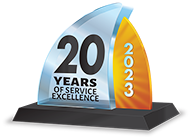Demystifying DOT SAP Guidelines for FMCSA Employees: A Comprehensive Guide
Are you an employee looking to better understand the DOT SAP guidelines? The Federal Motor Carrier Safety Administration (FMCSA) plays a crucial role in ensuring the well-being of drivers and the public. One of the key initiatives undertaken by the FMCSA is the implementation of Substance Abuse Professional (SAP) guidelines to address drug and alcohol-related issues among commercial motor vehicle (CMV) and Commercial Learners Permit (CLP) holders. For FMCSA-mandated employers tasked with enforcing these guidelines, understanding the intricacies of DOT SAP guidelines is paramount.
What are Some FMCSA-Mandated Positions Subject to DOT SAP Guidelines?
The DOT SAP guidelines mandate the assessment, referral, and treatment of CMV and CLP holders who have violated DOT drug and alcohol regulations or have been identified as having substance abuse problems. Unsure what types of functions are considered safety-sensitive? Read on for some examples of safety-sensitive functions:
-
- “All time at a carrier or shipper plant, terminal, facility, or other property, or on any public property, waiting to be dispatched, unless the driver has been relieved from duty by the employer. This includes employees who are “eligible” at work to drive a CMV at anytime, e.g., salespersons, clerks, secretaries, supervisors.
- All time inspecting equipment as required by 392.7, “Equipment, Inspection, and Use,” and 392.8, “Emergency Equipment and Use,” or otherwise inspecting, servicing, or conditioning any CMV at any time.
- All driving time, which is any time spent at the driving controls of a CMV in operation.
- All time, other than driving time, in or upon any CMV except time spent resting in a sleeper berth.
- All time loading or unloading a vehicle, supervising or assisting in loading or unloading, attending a vehicle being loaded or unloaded, remaining ready to operate the vehicle, or giving or receiving receipts for shipments loaded or unloaded.
- All time repairing, obtaining assistance for, or remaining with a disabled vehicle.”
What Should I Expect from the Return to Duty Process?
- Evaluation: When a safety-sensitive employee tests positive for drugs or alcohol or violates DOT drug and alcohol regulations, they are required to undergo a comprehensive evaluation by a qualified Substance Abuse Professional (SAP). This assessment aims to evaluate the extent of the driver’s substance abuse problem and determine the appropriate course of action.
- Referral: Based on the assessment findings, the SAP makes recommendations for appropriate education, treatment, and/or rehabilitation programs tailored to the individual’s needs. The SAP serves as a liaison between the driver, the employer, and regulatory authorities, facilitating the referral process and ensuring compliance with DOT regulations.
- Compliance: Employees must show compliance with their outlined program before their second evaluation with their qualified SAP. This ensures that they have followed through with any treatment and/or education that their SAP laid out for them and that they are taking the return to duty process seriously.
- Follow-Up Evaluation and Testing: Following completion of the recommended treatment program, employees are subject to a follow-up evaluation before they can submit to return to duty drug and/or alcohol testing. The frequency and duration of follow-up testing are determined by the SAP based on individual circumstances but typically involve regular testing for a specified period.
DOT SAP Guidelines are a Critical Component of the FMCSA’s Efforts to Enhance Safety
By understanding and adhering to these guidelines, FMCSA employers can play a pivotal role in identifying and addressing substance abuse issues among safety-sensitive employees, thereby promoting safer roads and protecting public health. Through comprehensive assessment, referral, treatment, and follow-up testing, DOT SAP guidelines facilitate the rehabilitation and recovery of drivers while upholding regulatory standards and ensuring the integrity of the transportation system.
Looking to find quality SAPs in your area? Contact us to learn more.


